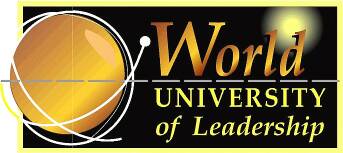|
Improving your work skills: (30 - 40 books)
·
Accounting
·
Administration
·
Advancing at Work/Seeking Promotion
·
African
Business – Doing business in Africa: Case
Histories of Successes and Failures, What works and what doesn’t, Dealing with corruption, Real lessons in running real
businesses in the African context.
·
C.E.O./G.M.
Resources
·
Change
(Managing Change)
·
Coaching/Mentoring
in Corporations
·
Communication
·
Company Law (Our courses focus on the underlying legal
considerations that managers should be aware of. However as Company law varies from country
to country, we encourage those interested in this area to pursue their own
study of the specifics of law in their own country – and will credit them
with up to 3 books of study for this.)
·
Computing
(including Introduction to Computers, the web and email; Typing; Microsoft
Word, Excel, Access, & Powerpoint; Pagemaker, Internet use and design etc.)
·
Conflict
Resolution
·
Customer
Service
·
Decision Making
·
Empowerment
·
Emotional
Intelligence
·
Finance
·
Human Resource
Management
·
Job Seeking
·
Leadership
·
Learning
·
Learning
Organisations
·
Management
·
Managing Non
Profit Organisations
|
·
Managing your
Boss
·
Marketing
(including internet marketing)
·
Paradigms
(Becoming a paradigm pioneer)
·
Project
Leadership
·
Quality/TQM
– Total Quality Management
·
Recruitment
·
Sales
·
Servant
Leadership
·
Small
Business/Entrepreneurship
·
Spirituality
and Business
·
Statistics
·
Strategic
Planning
·
Stress
Management
·
Teamwork
·
Technical
Management
·
Time
Management
·
Training
·
Values
·
Vision
·
Women Leaders
·
Workplace-Improving
it
Note: The emphasis in our “Business Leadership” Degree is on learning the
general skills and approaches which will result in you being successful as a
Business Leader and Manager.
Although topics such as Accounting, Company Law and Finance are included,
it should be recognised that these are covered in far less depth than some
other University programs that specialise in these fields.
|
Improving
yourself: (10 - 15 books)
Most business schools
determine their syllabus by asking the question “What do other business schools
teach?”
At World University of Leadership, we think this is a pretty lousy way to
determine what to teach. We’re
interested in you becoming a great manager and a great leader – so we’re
committed to teaching you what it takes to become a great leader. We’re
committed to helping you become the sort of person who brings out the best in
those who work for you.
So our syllabus includes a number of subjects designed to help you develop
the qualities that great managers and leaders have (and to ensure you don’t
share the qualities that bad managers and leaders have).
If you’re going to study leadership and management, then an important question
to think about is: “What is the difference between the best manager you’ve
worked for, and the worst manager?”
If you’re like the other 2000 managers we’ve asked this question of, then
chances are that most of the differences come down to personal qualities of the
managers:
The best managers are:
·
Good
listeners
·
Care about
their employees
·
Honest (and
a person of integrity)
·
Look for
the best in their employees – and bring out the best in them
·
Nice people
(happy & friendly)
·
Supportive
& encouraging
The worst managers are:
·
Bad
listeners
·
Don’t care
about their employees
·
Dishonest
or corrupt
·
Lack people
skills, lack self awareness, and are unwilling and unable to bring out the best
in others (in fact sometimes they excel in actually bringing out the worst in
people)
·
Unfriendly
& difficult to get along with
·
Critical
(and not in a constructive way) & unhelpful
·
Egotistical
·
Selfish
The
interesting thing is that although these are the actual qualities that
determine if someone is a great manager or a terrible manager, very few
business schools teach you how to develop the qualities of a great manager, and
how to ensure you don’t share the qualities of a terrible manager. (Although
they are good at teaching you lots of statistics, auditing theory and corporate
law.)
At World University of Leadership, we are committed to you
becoming a great leader, so a large part of our syllabus (15 - 25%) involves
you learning how to be a better listener, how to be more caring, how to be a
person of integrity … and how not to be critical, egotistical, and selfish.
(And
the performance reviews and the comments (and the promotions) of many our
students, show that they have improved markedly in these areas.)
Improving the world: (3 - 10 books)
The most successful companies in the
world have discovered that their profits (and their customers) are maximised,
and their staff is motivated and inspired most when the company is committed to
more than just making money. (Although making money must be a core focus as
well.)
One of the key ingredients of successful
companies is visionary leadership. The
greatest level of visionary leadership occurs when leaders aim to have their
companies contribute to the world (or to their country), as well as to their
shareholders or owner’s wealth. Paradoxically, when contribution is a major
value, this results in the companies performing at their best and actually
maximising their profitability.
In the book Built To
Last, James Collins and Jerry Porras identified
eighteen visionary companies that stood as leaders in their field, and looked
at what made them so successful. In researching these companies (3M, Boeing,
Citicorp, Ford, General Electric, Hewlett Packard, IBM, Johnson & Johnson,
Marriott, Merck, Motorola, Nordstrom, Phillip Morris, Proctor & Gamble,
Sony, Wal-Mart, and Walt Disney) they recognised that one major element was
that they were all driven by a purpose beyond simply making money. And yet (or
because of this) they actually made 15 times as much as the market generally. (As measured by their market capitalisation or total stock-market
value).
And if caring for others leads to
profitability for American, Australian and other Western companies – then how
much more likely is it that this will help when you work in Africa – where the
major employers and largest organisations are NGO’s who’s purpose and interest
is focused on contribution – and who are looking for like minded partners to
help in their activities.
As
a result of these considerations, our Masters Degree in Business Leadership includes
between 5 and 15 books of study in the fields of:
- Understanding
African Development Issues
- Understanding more about NGO's (Non Government Organisations)
& CBO’s (Community Based Organisations)
- Setting up an NGO or CBO
- Corporate Development in Africa
- Corporate Responsibility / Enlightened
Leadership / The Triple Bottom Line - How helping
others helps companies be more profitable.
- Systems Thinking
- Transforming large organisations such as Villages, Governments
and Countries
- Lessons from Visionary Leaders
If
you did your Bachelors Degree through World
University
If you have already completed a Bachelors Degree
in Business Leadership
through World University of Leadership:
Your 70 books worth of
study can be chosen from any of the 5,000+ articles, books, courses and audio
visual materials (equivalent to over 500 books) available to our Masters
Students; as well as from any of the 10,000+ articles, books, courses and audio
visual materials included in the electronic library given to you during your
Bachelors Degree. (However, as you would expect, you can’t restudy any
materials you’ve already studied for your Bachelors Degree.).
If you have already completed a Bachelors Degree
through World University of Leadership,
in a field other than Business Leadership:
You will need to
complete any of the modules contained in the Bachelors Degree of Business
Leadership that you haven’t already completed.
Many of the topics that you will have completed in your degree overlap
with those that are required study in the B.B.L Degree, so you won’t need to do
a great amount of study to catch up.
If you studied the
“Non-Profit Organisation and Management Development Program” (also known as the
“Non-Profit Micro E-MBA”) for your Bachelors Degree then you won’t need to
restudy the “Business and Management Development Program”. However you will need to write one or two
paragraphs on each of the modules you studied in this program (except the
introductory module) explaining what you feel are the differences between
applying the teachings to a For-Profit as compared to a Not-for-Profit
organisation.
Other than these
minimal requirements, your 70 books worth of study can be chosen from any of
the 5,000+ articles, books, courses and audio visual materials (equivalent to
over 500 books) available to our Masters Students; as well as from any of the
10,000+ articles, books, courses and audio visual materials included in the
electronic library given to you during your Bachelors Degree (other than any
materials you’ve already studied).
If
you haven’t done your Bachelors Degree
through
World
University then
you will study the following modules
• The Masters Degree in Business
Leadership for those who haven’t done their Bachelors Degree with World
University of Leadership, is fairly similar to our Bachelors Degree. The difference is that you are given more
choices, and you’re able to study the same materials in just over half the
time. (Assessments of your performance take into account that you are studying
at a faster rate, as well as the fact that you are a Masters student.)
• For part-time students studying 18
hours/week, one module is approximately equal to one month of study. Full-time
students studying 36 hours/week, should study two
modules per month.
|
Introductory
Modules:
Module 1.
• Steven Covey’s “7 Habits of Highly Effective People”.
(The best-selling business book of all time – with over 10 million copies
sold.)
Module 2.
• Improving your typing speed
• Introduction to computers, the internet and email
or •
Intermediate or Advanced computing
skills
Module 3.
• Leadership
(17 Chapters and 3 Appendices of
“The Leadership Guide”, and selections from “Uncommon Leadership”.)
Module 4.
• Free choice from your electronic library of resources.
Your
choice of the most interesting, relevant and useful readings (and courses and
audio-visuals) from the electronic library we provide you. {By the middle of the program we will have
given you over 10,000 articles (500+ books).}
N.B. The
free choice modules such as this one, provide the
opportunity for you to study any of the topics you have been studying, at
greater depth – and to have this study credited toward your final degree.
Module 5.
• Personal Development (Becoming the sort of manager who
brings out the best in your staff.)
Module 6.
•
Introduction to Microsoft Word
or •
Mastering Microsoft Word
•
Introduction to Microsoft Excel
or • Mastering Microsoft Excel
Business
Leadership Modules:
Module 7. - Free choice module
This is a free choice module. However, we suggest that students study “The Small Business Guide”.
Modules 8, 10, 11, 13, 14, 16 & 17:
“The Business and Management Development Program”: an in-depth program looking
at most of the key elements in running a business and being a manager.
Part A of Module 8. -
Program Orientation -- Getting The Most from This
Program
• Guidelines for You to Get The Most from This Program
• Tips to Improve Your Reading and
Studying Skills
• Extensive Free, On-line Resources About Business
• Designing Your Best Approach to Completing the Program
Part B of the Module - Starting and Understanding Your
Business Organization
• Entrepreneurship
• Conduct Feasibility Analysis About
Starting an Organization
• Key Roles in Your Organization
• Basic Structures in Your Organization
• Life Cycles of Your Organization
• Culture of Your Organization
Module 9.
Part A: - Free choice module
However, we do suggest that students continue studying
“The Small Business Guide”.
Part B: - Career Development Manual
· Self Assessment · Occupational Research
· Decision Making ·
Employment Contacts
· Work ·
Career/Life Planning
This program helps you identify your strengths and
capacities so that you can choose the ideal career for yourself. It’s designed
to help you clarify how you want to use your degree when you have finished
studying, so that you are thinking about how to apply the learnings
as you learn. Also included are about 70
interviews with people working in various jobs. (“In these
interviews, you'll get the facts on people's education, career paths,
aspirations, and the truth about how they really spend their time at work.”)
Module 10.
Part A - Understanding the Role of Chief
Executive
• What is a Chief Executive Officer (CEO)?
• Major Functions of CEO
• Core Knowledge and Skills for CEO Role
• Early Preparation for Building Board
• Early Preparation for Strong Board-Staff Relationships
• Avoiding "Founder's Syndrome"
|
Part B of Module 10 - Developing Your Basic Management &
Leadership Skills
• Basic Skills in:
◦ Problem Solving/Decision
Making
◦ Planning
◦ Delegation
◦ Internal Communications
◦ Meeting Management
◦ Managing Yourself
• Advanced Topics in Management and Leadership
• Optional -- Designing Your Management and Leadership Development Plans
Module 11. (A break
from the “Business and Management Development Program”)
• Professional Communication: Improving your English communication skills
so you aren’t disadvantaged when operating in a global market.
Module 12. - Part
A –Building and Training Your Board of Directors
• Understanding Board Roles and Responsibilities
• Building Policies and Committees
• Building Committees
• Recruiting New Members
• Ensuring Strong Participation
• Board and CEO Evaluations
• Board Calendar and Operations
• Organizing Board Manual
• Training Board Members
Part B of the module – Free Choice
Module 13. – Developing
Your Strategic Plan
• Understanding Strategic Planning
• Writing Your Mission,
Vision and Values Statements
• Conducting Strategic Analysis
• Setting Strategic Direction
• Conducting Action Planning
• Developing Operating Budgets
• Writing and Communicating Your Plan
• Monitoring and Evaluating Your Plan
Module 14. - Marketing Your
Products/Services and Promoting Your Organization
• Conducting Market Analysis for Each Product/Service
• Developing Your Public and Media Relations Plan
• Developing Your Sales Plan
• Developing Your Advertising and Promotions Plan
• Organizing Your Marketing and Promotions Plans
Module 15. -
Free Choice / Catch-Up
• Technically this is a free
choice module.
However, as the practical exercises for the previous two
modules: “Developing Your Strategic Plan” and “Marketing Your Products/Services
and Promoting Your Organization” are very intensive (and very valuable), you
can use this module to catch up. If the
strategic plans and marketing plans submitted were of high quality, you will be
given bonus books in recognition of this work.
Part A of Module 16.
- Managing Your Accounting and Finances
• Basics of Bookkeeping
• Budgeting
• Cash Management
• Financial Statements
• Financial Analysis
Part B of this module - Free Choice: If you have time after completing this you are
invited to study your choice of resources from the resources in your electronic
library
Part A of Module 17. - Staffing and
Supervising Your Employees
• Defining New Job Roles
• Recruiting Job Candidates
• Screening Applicants
• Orienting New Employees
• Delegating to Employees
• Ensuring Strong Performance
• Firing Employees
• Personnel Policies and Handbooks
Part B of the Module - Practical Guide to Managing Ethics in
the Workplace (so employees don’t eat the firm’s money – and so the
company doesn’t end up in trouble)
• What is Business Ethics?
• Myths About Business Ethics
• 10 Benefits of Managing Ethics
• Ethics Management System
• 8 Guidelines for Managing Ethics
• 6 Key Roles and Responsibilities
• Ethics Tools: Codes of Ethics
• Ethics Tools: Codes of Conduct
• Ethics Tools: Policies
• Ethics Tools: Resolving Ethical Dilemmas
• Ethics Tools: Training
Modules 18. -
20: - As with other “Free Choice” modules, you are given the choice of the most
interesting, relevant and useful readings (and courses and audio-visuals) from
over 10,000 articles (500+ books) in the electronic library provided.
These include courses such as:
◦ Money
Manager - Step by Step Guides on Organising Your Finances, Property Buying,
Paying For Education, Building Wealth, Preparing For Retirement, Smart Spending
◦ Conflict
Resolution Course
◦ Presentation
Skills Course
|


